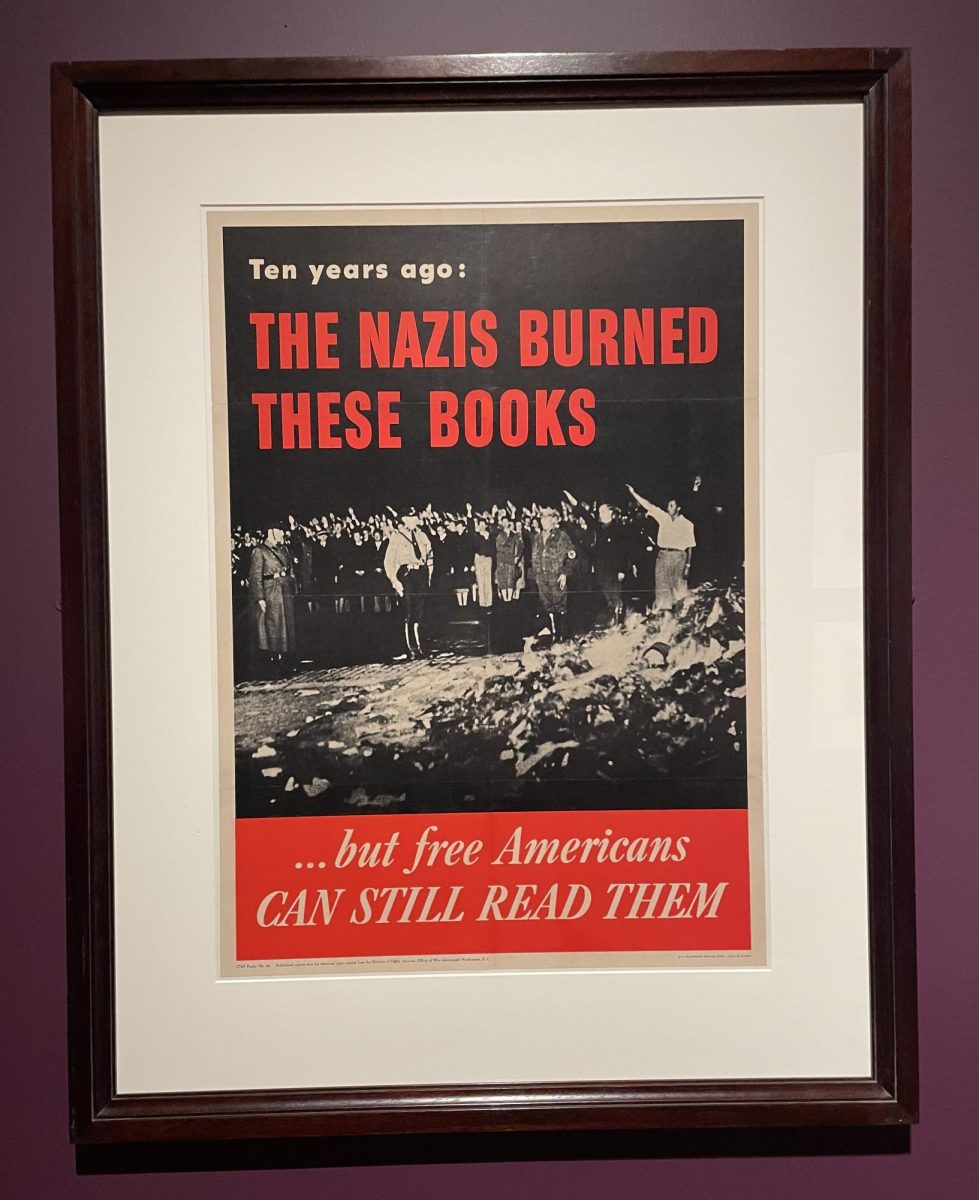The topic of book bans seems to have been on the increase in news headlines over the past few years and presidential administrations, but what does a “book ban” really mean?
An important distinction to make within the discussion of book bans is the difference between a challenged book and a banning.
According to the American Library Association, a challenge is “the attempt to remove or restrict materials, based upon an objection by a person or group,” and a banning is “the removal of those materials.”
Misconceptions about book banning is that books would be taken off the shelves at bookstores and though that could theoretically happen, banning books is mainly a discussion in K-12 public schools.
The right to a free K-12 public education is protected by the Constitution under the equal protection clause of the 14th Amendment that guarantees any American citizen to the same treatment.
However, since the Constitution does not explicitly state that education is decided by the federal government, the power of setting the standards of K-12 public education falls to the states under the 10th Amendment.
This means that when books are banned or challenged within a public school system’s curriculum or library, it is not a nationwide issue but an issue that varies from state to state.
Some states like Maine, Florida and New Mexico leave deciding curriculum to local districts or school districts and provide no recommendations. Other state governments like Massachusetts, Illinois and Idaho give local educational boards and districts recommendations but the recommendations do not necessarily have to be followed. States like North Carolina have to follow the guidelines and curriculum that are stated by the state government, and some like Texas, South Carolina and Minnesota have a mix of both, where some requirements are made by the state and the rest are left up to the discretion of the local board or district.
All of this is to say that who sets the curriculum and who chooses what books are taught and available to students varies heavily from state to state and is not federally mandated.
The task of picking what books to add to the curriculum or even what books to allow students to check out within their school’s library has become increasingly difficult.
Attempts to censor books rose from 235 total titles challenged in 2014 to 9,021 total titles challenged in 2023, according to the ALA.
“Sexually explicit” content, “offensive language” and material “unsuited to any age group” were the top three reasons cited to the ALA’s Office of Intellectual Freedom for why a book was being challenged.
A more in-depth look reveals very specific categories that many challenged books tend to fall into. “Book bans from the 2023-2024 school year overwhelmingly featured stories with people or characters of color and/or LGBTQ+ people. We also observed how cases of book bans increasingly target stories by and about women and girls and/or that include depictions of rape or sexual abuse,” according to PEN America.
PEN America, a non-profit organization whose mission is to protect free speech and expression, especially in literature, is on the front lines of research on why books are being challenged and who is behind it.
Many assume that parents of students are behind the increase in challenged books, however, PEN America “documented thousands of book bans since 2021, when the scope of censorship expanded dramatically, tied to directives from elected officials & pressure from local groups.”
The purpose of a book challenge is mainly for parents, students and teachers to have a say in what materials they believe are appropriate to be taught or should be available within the public school system.
Elected officials, meaning those elected to school boards who are not in close contact with education in the classrooms, should not be using their power to control what material is available to students, Especially if the teachers, parents and students who are in direct contact with the materials do not see an issue.
In order to make sure that book challenges were legitimate, former President Joe Biden created a position in the Department of Education to investigate the book-banning claims in response to the consistently increasing number of books that were being challenged.
The “book ban coordinator” had the role of monitoring the increase in banned books within the states and the position of being in oversight of the investigations that the Department of Education is legally required to do for complaints that allege any kind of civil rights violation.
There is no harm in having a role like this at the federal level. The book ban coordinator did not have any authority to ban books themselves, but rather was a way to check the states or districts to see if they are taking their ability to control curriculum and the material students have access to, too far. If a challenged book did meet the requirements to be banned, the Office of Civil Rights would uphold that.
However, that position no longer exists under the current Trump administration. The Department of Education Office for Civil Rights issued a press release Jan. 24 announcing the removal of the position of book ban coordinator as well as dismissing all investigations and complaints in relation to book challenges and bans in various states.
“The department adheres to the deeply rooted American principle that local control over public education best allows parents and teachers alike to assess the educational needs of their children and communities. Parents and school boards have broad discretion to fulfill that important responsibility. These decisions will no longer be second-guessed by the Office for Civil Rights at the U.S. Department of Education,” said Acting Assistant Secretary for Civil Rights Craig Trainor.
I can agree with the notion that there should not be one federally mandated curriculum for all states. Allowing state and local governments to make their own curriculum allows for a better education for students. Each state and town has a different history, different access to materials and different demographics that should have an impact on how education is designed within them.
However, I think there should be some very limited federal oversight of the public school system for the purpose of investigating challenges. Having a position like a book ban coordinator ensures that state and local governments who have control over the materials students can access are not abusing their power and banning materials that do not meet the requirements to be restricted.
Allowing states or elected officials to ban books, especially without input from students, parents and teachers, and effectively removing those materials from public schools limits access for students to learn about certain topics like racism, different political views, sexism and similar themes.
Banning books without clear reason to do so benefits no one, and only harms the students by taking away their ability to obtain a well-rounded education.















Alice labrum • Feb 13, 2025 at 6:53 pm
Great article Ella not surprised.
I feel,the parents are the only one who should be able to ban
Books from their children.